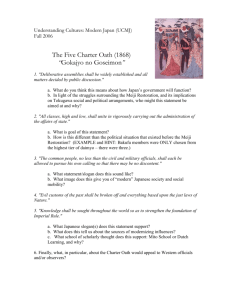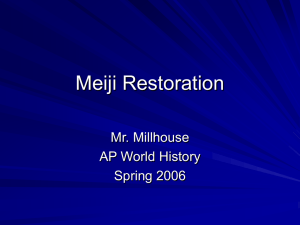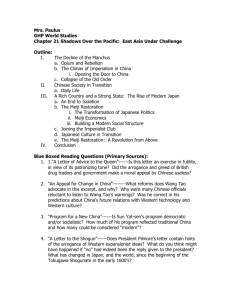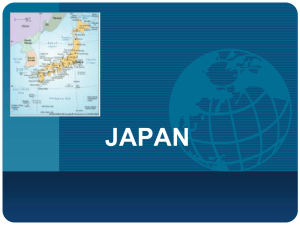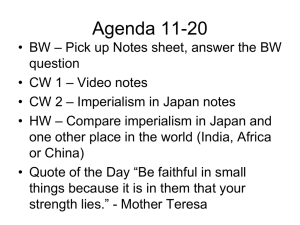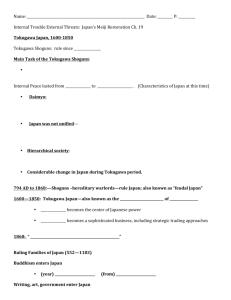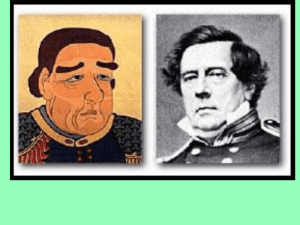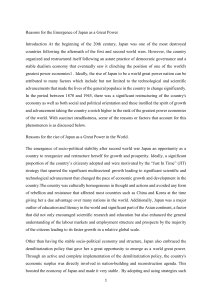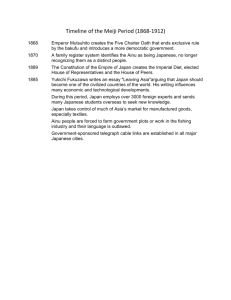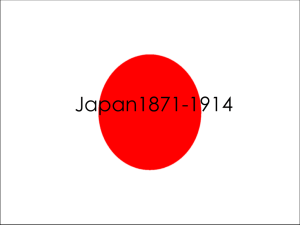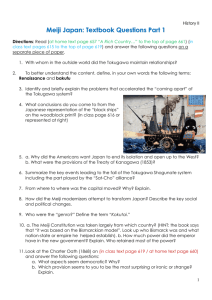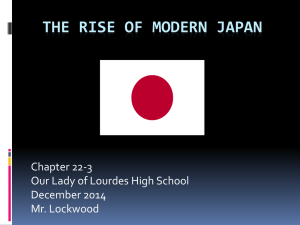Meiji Restoration: Review Questions & Review Sheet
advertisement
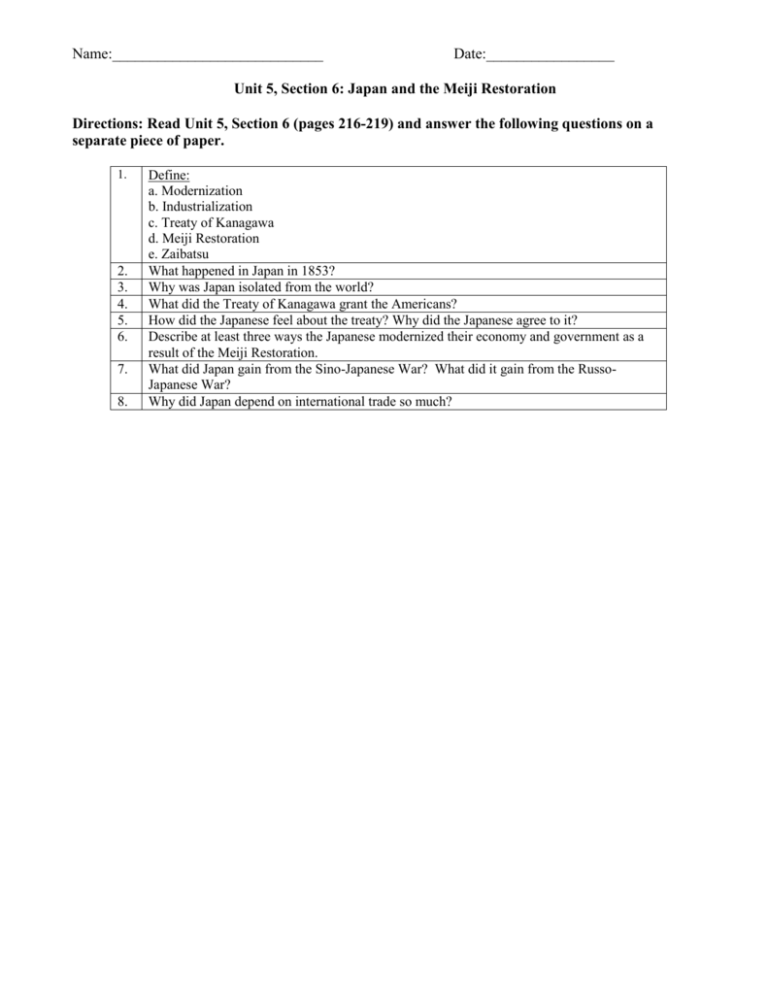
Name:____________________________ Date:_________________ Unit 5, Section 6: Japan and the Meiji Restoration Directions: Read Unit 5, Section 6 (pages 216-219) and answer the following questions on a separate piece of paper. 1. 2. 3. 4. 5. 6. 7. 8. Define: a. Modernization b. Industrialization c. Treaty of Kanagawa d. Meiji Restoration e. Zaibatsu What happened in Japan in 1853? Why was Japan isolated from the world? What did the Treaty of Kanagawa grant the Americans? How did the Japanese feel about the treaty? Why did the Japanese agree to it? Describe at least three ways the Japanese modernized their economy and government as a result of the Meiji Restoration. What did Japan gain from the Sino-Japanese War? What did it gain from the RussoJapanese War? Why did Japan depend on international trade so much? Name:____________________________ Date:_________________ Review Sheet: Japan and the Meiji Restoration I. Vocabulary a. Modernization: introducing modern advancements into a country b. Industrialization: a process of social and economic change whereby a human society is transformed from a pre-industrial to an industrial state where goods are mass produced in factories c. Treaty of Kanagawa: Treaty made between Japan and the USA in 1854, opening two ports for trade d. Meiji Restoration: overthrow of the Tokugawa shogun and the restoration of the emperor in Japan during 1868 e. Zaibatsu: wealthy families that owned Japanese factories II. The Opening of Japan a. In 1853, United States ships ailed into Edo ending 200 years of Japanese isolation b. During the 1600s the Tokugawa shoguns had banned almost all contact with the outside world (only trading with the Dutch) c. Commodore Matthew Perry sailed into Edo and presented a letter asking the Japanese to open their ports to trade d. Impressed b by the American show of strength, the Japanese agreed to the Treaty of Kanagawa opening two ports to the Americans e. Some Japanese felt that the shogun had shown weakness while others felt that Japan needed to modernize in order to compete with the West f. A rebellion overthrew the shogun and restored the emperor, beginning a period of modernization and industrialization III. Modernization and Industrialization a. With the Meiji Restoration in 1868, the emperor initiated a series of reforms that changed Japan forever b. Members of the government traveled to learn about western government, economics, technology and customs c. The Meiji government used western methods and machinery to industrialize their economy; wealthy families that owned factories were known as zaibatsu d. A banking system, postal system, railroads and better ports were constructed to help the economy grow e. Meiji reformed wanted to establish a strong government and used Germany as a model f. Japan modernized its military and defeated China in 1894 and later Russia g. Public education system and universities were set up to teach modern technology; class distinctions still exited and women were treated unequally IV. Japan as a Global Power a. With its strength increased, Japan began a policy of imperialism b. In 1894 Sino-Japanese War, Japan went to war with China over Korea and defeated them, making Korea a protectorate of Japan c. From 1904-1905, Japan fought the Russo-Japanese War over part of Korea and Manchuria; Japan defeated Russia d. Because of Japan’s island geography, it relied heavily on trade for raw materials and food
